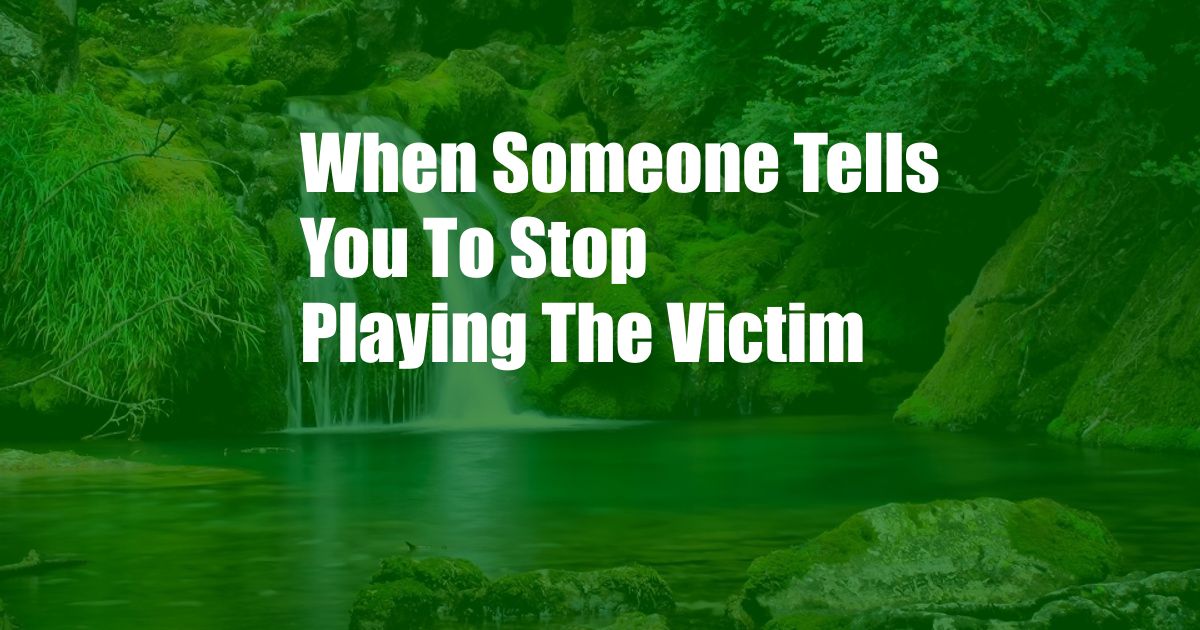
When Someone Tells You to Stop Playing the Victim
Have you ever been told to stop playing the victim? It’s a common phrase used to silence those who are speaking out about their experiences of injustice or oppression. But what does it really mean? And is it ever justified?
In this blog post, we will explore the meaning of “playing the victim” and discuss when, if ever, it is an appropriate response to someone’s experiences.
What Does It Mean to “Play the Victim”?
When someone is told to “stop playing the victim,” it usually means that they are being accused of exaggerating their experiences or of using their victimhood to manipulate others. It can also imply that the person is not taking responsibility for their own actions or that they are simply trying to avoid blame.
There is a fine line between speaking out about your experiences and playing the victim. It’s important to be honest about your experiences and to not downplay the impact that they have had on you. However, it’s also important to avoid dwelling on your victimhood or using it as an excuse for your own behavior.
When Is It Okay to “Play the Victim”?
There are some situations in which it may be appropriate to “play the victim.” For example, if you have been the victim of a crime or other traumatic event, it’s understandable that you would need time to process what has happened and to seek support from others.
It’s also important to remember that everyone experiences victimhood differently. What may be traumatic for one person may not be for another. It’s important to be respectful of others’ experiences and to not judge them for how they choose to cope.
Tips for Avoiding Playing the Victim
If you’re concerned that you may be playing the victim, there are some things you can do to avoid it. First, try to focus on the facts of your situation and avoid exaggerating your experiences. Second, take responsibility for your own actions and don’t blame others for your problems. Finally, seek support from others who can help you to process your experiences and move forward.
Expert advice suggests that it’s important to challenge the underlying assumption that playing the victim is always a negative thing. Sometimes, it can be a necessary step in the healing process.
FAQs About Playing the Victim
Q: What are some of the signs that someone is playing the victim?
A: Some of the signs that someone is playing the victim include: exaggerating their experiences, blaming others for their problems, and using their victimhood to manipulate others.
Q: What are some of the consequences of playing the victim?
A: Some of the consequences of playing the victim include: losing the respect of others, alienating yourself from friends and family, and making it difficult to move on from your experiences.
Conclusion
Playing the victim is a complex issue. There is no easy answer to the question of when, if ever, it is justified. However, by understanding the meaning of “playing the victim” and the potential consequences of doing so, you can make informed choices about how to respond to your own experiences and to the experiences of others.
What do you think? Is it ever okay to “play the victim”? Let us know in the comments below.